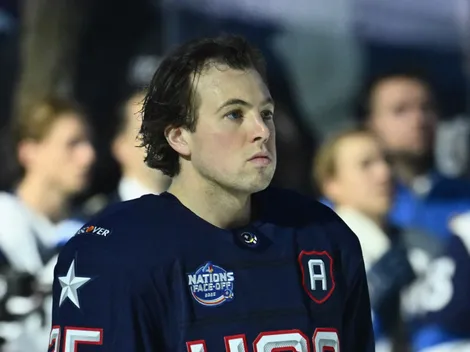In the history of the NBA, few players have embodied power, consistency, and impact quite like Karl Malone. Nicknamed “The Mailman” for his ability to deliver under pressure, Malone was the face of the Utah Jazz for nearly two decades. With his imposing physique, relentless work ethic, and scoring prowess, he became the league’s third all-time leading scorer, leaving an indelible mark on the game. Alongside his legendary running mate, John Stockton, Malone led the Jazz to unprecedented heights, including back-to-back NBA Finals appearances in 1997 and 1998.
However, Malone’s legacy extends beyond his on-court dominance. His opinions on the greatest players in NBA history have sparked debates over the years. Contrary to popular belief, Malone refuted claims that he had called Michael Jordan the greatest player of all time.
“Well, you say MJ is the best player you’ve ever seen. I didn’t say that,” Malone told Adam Fisher of Bleacher Report in 2010. “I don’t consider him the best player I’ve ever seen.”
Some might speculate that Malone’s comments stem from the sting of losing to Jordan’s Bulls in two consecutive Finals during the late 1990s. Yet, Malone’s criteria for evaluating greatness seem rooted in a different era. When discussing his pick for the GOAT, Malone leaned toward Wilt Chamberlain and Bill Russell, two titans of the game’s early years. “It’s debatable that it could be Wilt Chamberlain or Bill Russell,” the 14-time All-Star said.

Wilt Chamberlain – Los Angeles Lakers
Malone’s unique perspective on greatness
Malone didn’t shy away from sharing his admiration for the players who shaped his career, both as teammates and opponents. “The best teammate/player I ever played with was John Stockton,” he said, highlighting the unparalleled chemistry he shared with the Jazz’s Hall of Fame point guard. Reflecting on his toughest matchups, Malone also praised Buck Williams and Maurice Lucas.

see also
LeBron James shatters Michael Jordan's legendary NBA record in latest milestone
“They were the PF [power forwards] of that era, and I was just coming into that era,” Malone said. “To be able to play against those guys and learn from them as a rookie meant a lot.” When asked to construct his all-time starting five, Malone offered a lineup that surprisingly omitted Jordan:
Center: Wilt Chamberlain
Point Guard: John Stockton
Power Forward: LeBron James
Shooting Guard: Oscar Robertson
Small Forward: Scottie Pippen
Malone’s inclusion of Pippen raised eyebrows, but he provided a compelling defense of his choice.“Scottie Pippen led the team in every statistical category when he was there without Michael Jordan,” Malone said on The Dan Patrick Show.
Karl Malone and John Stockton: A legendary partnership
Few duos in NBA history have achieved the level of success and synergy that Karl Malone and John Stockton did during their nearly 20 years together with the Utah Jazz. Malone’s dominance as a scorer—amassing more than 36,000 points, earning two MVP awards, and making 14 All-Star appearances—was amplified by Stockton’s brilliance as a floor general.
Stockton, widely regarded as one of the greatest point guards of all time, led the NBA in assists for nine consecutive seasons and holds the all-time record with over 15,000 assists, many of which ended in Malone’s hands.

see also
NBA News: Michael Jordan’s former teammate revealed his frustration guarding certain players
For Malone, Stockton was more than a teammate; he was an extension of his own game. “The best teammate/player I ever played with was John Stockton,” Malone reiterated.
Their connection, particularly in the pick-and-roll, became the Jazz’s signature play and one of the most effective strategies in NBA history. Stockton’s discipline, leadership, and unselfish play allowed Malone to flourish, and together, they propelled the Jazz to the NBA Finals in 1997 and 1998, only to fall short against Michael Jordan’s Bulls.
Karl Malone’s career is a testament to sustained greatness, but his partnership with John Stockton underscores the importance of chemistry in building a lasting legacy. Though they never captured an elusive championship, their dominance, resilience, and mutual respect continue to inspire and serve as a benchmark for modern NBA duos.





